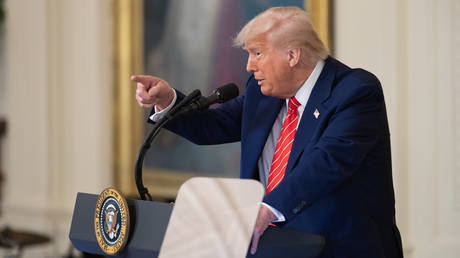Million? Billion? Trillion? Debate Over AI Costs Ignited by China's DeepSeek
China's DeepSeek has ignited a debate about the costs associated with artificial intelligence, raising questions about the scale of investment required — whether it's in the millions, billions, or even trillions.

The world is currently immersed in a global AI arms race involving both businesses and the countries they are based in. Discussions frequently highlight "safety," indicating that the potential consequences for humanity could be profound. Despite the high stakes, there is a persistent "hype" surrounding this race, notably reflected in the enormous amounts of funding and investment being discussed publicly. This environment of skepticism regarding the cost of AI is informed by two key perspectives, ranging from about $6 million to $500 billion.
The $6 million perspective stems from China and has altered both the rankings of AI powerhouses and the previously understood paths to success. A lesser-known AI lab, DeepSeek, located in Hangzhou, Zhejiang Province, has gained significant attention in app stores and on social media following the launch of the DeepThink R1 reasoning mode in its AI chatbot application. Amid the rapidly changing landscape of technical chatbot comparisons, where version details can complicate matters, DeepSeek R1's "reasoning" has been notably impressive. It articulates its thought processes, which can be surprisingly eye-opening and seem organically intelligent to those unfamiliar with the intricacies of AI technology. The revelation that this achievement has only cost roughly $6 million has created ripples within the industry.
As more information about DeepSeek emerges, its implications are becoming clearer. The lab reportedly utilized a fraction of the resources employed by leading American AI companies, such as OpenAI, which triggered the generative AI boom with the introduction of ChatGPT two years ago. Nvidia, once a gaming graphics card manufacturer, has transformed into a critical supplier of AI chips but made only a modest contribution to DeepSeek's accomplishments. The small quantity of Nvidia's H100 chips employed by DeepSeek contrasts sharply with the American ambition to construct AI supercomputer clusters featuring hundreds of thousands of advanced Nvidia chips.
Prominent American AI leaders, many of whom have been linked to OpenAI at various points, believe that algorithms, data, and compute power drive AI development. DeepSeek's algorithm is uniquely open-sourced among its competitors, with Meta’s Llama emerging as its closest American equivalent. The data aspect of AI is continuously evolving, with some suggesting a shift toward "synthetic" data envisioned as the next great leap, paving the way for "agentic AI" capable of autonomous decision-making. Meanwhile, compute remains the most substantial financial burden, with access to Nvidia hardware creating high entry barriers.
This sets the stage for the second "$500 billion" cost assertion regarding AI. Shortly into his second presidential term, Donald Trump announced the launch of a new AI enterprise named Stargate, which includes well-known figures from OpenAI, Oracle, and Softbank, alongside investment from UAE's MGX. Stargate aims to invest a total of half a trillion dollars into AI infrastructure in the United States, beginning with an immediate commitment of $100 billion. This announcement led to a flurry of skepticism.
Elon Musk, a known supporter of Trump who has famously clashed with OpenAI's Sam Altman, publicly dismissed Stargate, suggesting they lack the financial backing they claim and labeling Altman a "swindler." Additionally, Satya Nadella, CEO of Microsoft, which has a significant stake in OpenAI, echoed these doubts by only affirming Microsoft's planned $80 billion investment in AI this year. Not wanting to be outshined, Meta’s Mark Zuckerberg declared on Facebook his intention to allocate $60-$65 billion toward Meta AI by 2025 to construct a data center the size of Manhattan. Furthermore, Indian billionaire Mukesh Ambani, leading oil-to-data conglomerate Reliance, is reportedly planning an AI data center that could be 50% larger than Zuckerberg's initiative. Ambani previously announced a partnership with Nvidia's Jensen Huang, emphasizing the global financial interest in AI.
In the midst of these discussions regarding the financial viability of the US-centric Stargate, DeepSeek poses a crucial question for the future of AI: does the field genuinely require such colossal investments, or is this merely an effort to establish perceived barriers to entry on the journey toward achieving AGI? With its open-source approach and capabilities that allow operation from standard office computing clusters, DeepSeek has made a strong case for achieving better AI advancements through refinement rather than starting from scratch.
Lastly, there are significant geopolitical implications, with an unexpected connection to Trump. Joe Biden's administration faced criticism for its move to restrict AI-related exports to China, a strategy that has drawn condemnation from top US AI players. This policy is starting to look increasingly ineffective or ill-advised as innovation tends to find a way forward. DeepSeek's emergence has prompted numerous questions within the AI community, a reality underscored by the noticeable decline in prominent US AI-related stocks.
Alejandro Jose Martinez for TROIB News
Discover more Science and Technology news updates in TROIB Sci-Tech












